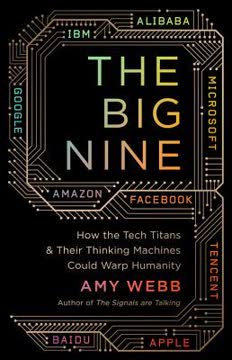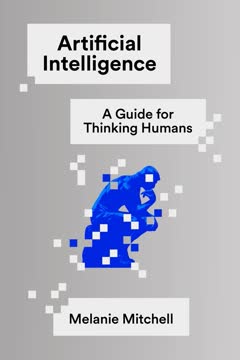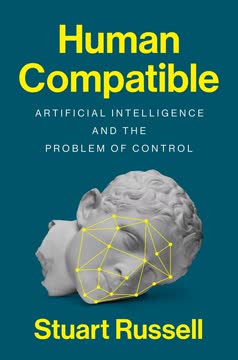重点摘要
1. 人工智能的四个浪潮:重塑行业和社会
完整的人工智能革命需要一些时间,*终将以四个浪潮的形式席卷我们:互联网人工智能、商业人工智能、感知人工智能和自主人工智能。
互联网人工智能已经到来,通过推荐引擎和个性化内容重塑我们的数字体验。商业人工智能通过挖掘大量数据集优化企业决策。感知人工智能正在数字化我们的物理世界,使机器能够看、听和理解我们。自主人工智能仍在开发中,承诺将彻底改变交通和制造业。
这些浪潮并不是独立的;它们相互重叠并相互强化:
- 互联网人工智能:为谷歌、脸书和今日头条等平台提供动力
- 商业人工智能:提升金融服务、医疗诊断和法律分析
- 感知人工智能:推动零售、家庭自动化和城市管理的创新
- 自主人工智能:通过自动驾驶汽车、无人机和机器人改变行业
2. 中美:技术冷战中的人工智能超级大国
这些企业和学者共同将中国变成了一个名副其实的人工智能超级大国,是在这一新兴技术领域唯一真正能与美国抗衡的国家。
对比优势。 美国在前沿人工智能研究方面领先,并吸引全球人才,而中国在人工智能实施和数据收集方面表现出色。中国的优势包括:
- 大量用户基础生成宝贵数据
- 政府对人工智能项目的支持和资助
- 坚韧的企业家生态系统和强大的制造能力
合作潜力。 尽管竞争激烈,人工智能的发展并不是零和游戏。两国都可以为全球人工智能进步做出贡献:
- 美国:开创基础人工智能研究并促进创新
- 中国:快速部署人工智能解决方案并扩大应用
- 跨国合作的潜力,以应对全球挑战
3. 工作替代:人工智能危机的真正威胁
在十到二十年内,我估计我们将有技术能力自动化美国40%到50%的工作。
广泛影响。 人工智能驱动的自动化将影响从蓝领到白领的各类工作:
- 常规认知任务(如数据分析、基础写作)容易自动化
- 需要灵活性和适应性的体力工作在短期内更具韧性
- 创意和情感智能角色*不易立即被替代
经济后果:
- 随着人工智能集中财富,收入不平等加剧
- 前所未有的技术性失业潜力
- 中产阶级的衰退和社会不稳定
4. 超越算法:人类爱与同情的重要性
尽管人工智能有惊人的能力,只有人类才能提供的东西恰恰是我们生活中*需要的:爱。
人工智能的局限性。 尽管其认知能力强大,人工智能缺乏情感智能和真正的人类联系能力。作者通过个人危机认识到这一点:
- 癌症诊断迫使重新评估生活优先事项
- 认识到人类关系和同情心的不可替代价值
重新定义人类价值。 随着人工智能接管许多传统工作职能,我们必须转变关注点:
- 从生产力和经济产出转向同情心和情感智能
- 拥抱人工智能无法复制的独特人类品质
- 培养一个重视关怀、创造力和人际关系的社会
5. 重新定义工作:拥抱人类与人工智能的共生关系
如果我们能创造这种协同效应,它将使我们能够利用人工智能的巨大力量来创造繁荣,同时也拥抱我们本质上的人性。
合作模式。 工作的未来在于人类与人工智能的合作,而不是竞争:
- 人工智能处理常规、数据驱动的任务
- 人类专注于同情心、创造力和复杂问题解决
新兴机会:
- 医疗保健:人工智能驱动的诊断与富有同情心的护理人员相结合
- 教育:个性化的人工智能学习工具与富有同情心的教师相辅相成
- 客户服务:人工智能处理查询,人类提供情感支持
文化转变需求:
- 超越将人类视为纯粹经济单位的观念
- 重视和奖励社会和情感智能
- 培养终身学习和适应能力的劳动力
6. 社会投资津贴:人工智能时代的新社会契约
我建议我们探索创建一种我称之为社会投资津贴的东西,而不是普遍基本收入。
超越普遍基本收入。 作者提出了一种更为细致的方法来应对人工智能引发的工作替代问题:
- 政府为社会有益的活动提供薪水
- 关注护理工作、社区服务和教育
- 奖励亲社会行为,同时提供经济保障
实施挑战:
- 定义合格活动和绩效指标
- 平衡选择自由与社会利益
- 通过对人工智能产生的财富征税来确保资金
潜在利益:
- 保持人类尊严和目的感
- 培养一个更有同情心和互联的社会
- 提供经济稳定,同时鼓励社会贡献
7. 全球合作:利用多元智慧迎接人工智能未来
没有一个国家能解决我们面临的所有复杂问题,但如果我们借鉴多元智慧,我相信没有什么问题是我们不能共同解决的。
多元视角。 不同文化和社会为应对人工智能革命提供了独特的见解:
- 韩国:天才教育项目培养顶尖人才
- 瑞士和日本:重视人类艺术的工艺文化
- 加拿大和荷兰:强大的志愿服务传统
- 不丹:如国民幸福总值等替代进步衡量标准
政策实验。 各国在人工智能治理方面采取了不同的方法:
- 欧洲:严格的数据保护和反垄断措施
- 美国和中国:更自由放任的态度以促进创新
- 学习多样化监管框架的机会
合作的必要性。 人工智能的全球影响需要国际合作:
- 分享教育和劳动力发展的*佳实践
- 协调伦理人工智能的开发和部署
- 解决工作替代和不平等等共同挑战
人类的能动性在塑造我们的人工智能未来中至关重要。通过拥抱多元视角和促进全球合作,我们可以在保持人性的同时利用人工智能的潜力。
最后更新日期:
FAQ
What's AI Superpowers about?
- AI Competition: AI Superpowers by Kai-Fu Lee examines the intense competition between the United States and China in the realm of artificial intelligence, highlighting each country's unique strengths.
- Societal Impact: The book explores the profound implications of AI on jobs, the economy, and global power dynamics, discussing both potential benefits and challenges.
- Personal Insights: Lee shares his experiences as an AI researcher and venture capitalist, offering a personal perspective on the evolution of AI technologies and their societal impacts.
Why should I read AI Superpowers?
- Global Dynamics: The book is crucial for understanding the future of technology and its geopolitical implications, particularly how AI will influence global power structures.
- Informed Predictions: Lee provides insights into how AI will transform various industries and job markets, helping readers prepare for upcoming changes.
- Cultural Perspectives: It contrasts the entrepreneurial cultures of Silicon Valley and China, offering a deeper understanding of how these environments foster innovation.
What are the key takeaways of AI Superpowers?
- Transformative Force: AI is not just a technological advancement but a transformative force that will redefine economies and societies.
- China's Progress: China has rapidly caught up to the U.S. in AI, driven by government support, vast data resources, and a competitive entrepreneurial environment.
- Human-AI Collaboration: Lee advocates for a future where humans and AI coexist, focusing on enhancing human capabilities rather than replacing them.
What are the best quotes from AI Superpowers and what do they mean?
- "We’re all full of questions without answers.": This quote reflects the uncertainty surrounding AI's future and the need for societal discussions about its implications.
- "AlphaGo’s victories were both a challenge and an inspiration.": It highlights how technological advancements can spur nations to innovate and compete, especially in AI.
- "Our AI future will be created by us.": Lee emphasizes human agency in shaping AI's future, suggesting that our choices will determine its societal impact.
How does Kai-Fu Lee define AI superpowers in AI Superpowers?
- Superpowers Definition: AI superpowers are nations that effectively harness AI technologies to drive economic growth and influence global affairs.
- China vs. U.S.: While the U.S. has historically led in AI research, China is emerging as a formidable competitor due to its unique advantages.
- Data Importance: Data is a critical resource for AI development, and countries with vast data access will have a significant edge.
What are the four waves of AI discussed in AI Superpowers?
- Internet AI: Enhances online experiences with applications like recommendation algorithms used by companies such as Alibaba and Google.
- Business AI: Optimizes traditional business processes, improving efficiency in sectors like finance and healthcare.
- Perception AI: Interprets sensory data, enabling applications like facial recognition and autonomous vehicles.
- Autonomous AI: Encompasses fully autonomous systems, such as self-driving cars and drones, with profound industry implications.
How does AI Superpowers address the potential job displacement caused by AI?
- Job Loss Predictions: Lee predicts AI could replace 40-50% of jobs in the U.S. within the next 15 years, affecting both low-skill and high-skill positions.
- Historical Context: The book draws parallels to past technological revolutions, suggesting society has historically adapted to such changes.
- Need for Adaptation: Emphasizes the importance of education and policy adjustments to ensure workers can transition into new roles.
What is the significance of the "Sputnik Moment" in the context of AI in AI Superpowers?
- Cultural Awakening: The term describes how AlphaGo's victory ignited a national obsession with AI in China, similar to the U.S. response to the Soviet satellite launch.
- Government Mobilization: Led to significant government investment and policy initiatives aimed at making China a global AI leader.
- Inspiration for Innovation: Served as a wake-up call for Chinese entrepreneurs and researchers, motivating aggressive AI advancements.
How does AI Superpowers compare the U.S. and China in terms of AI development?
- Different Approaches: The U.S. focuses on innovation and individualism, while China emphasizes rapid implementation and government support for AI initiatives.
- Cultural Factors: Cultural attitudes towards technology, data privacy, and government intervention influence AI progress in each country.
- Future Predictions: Lee predicts China may surpass the U.S. in AI implementation due to its advantages in hardware manufacturing and data availability.
What role does data play in AI development according to AI Superpowers?
- Data as a Resource: Data is the most critical resource for AI development, surpassing even computing power and talent.
- China's Advantage: China's vast population and digital ecosystem generate enormous data amounts, giving Chinese companies a significant edge in training AI algorithms.
- Quality of Data: Not only quantity but also the quality of data—how it reflects real-world behaviors and preferences—is crucial for effective AI applications.
What is the proposed social investment stipend in AI Superpowers?
- Definition and Purpose: A proposed government salary for individuals engaging in socially beneficial activities, such as care work and community service.
- Contrast with UBI: Unlike universal basic income, the stipend requires participation in meaningful activities, fostering community and purpose.
- Cultural Shift: Encourages valuing human connections and compassion over solely economic productivity, aiming for a more humane society in the AI age.
How does AI Superpowers envision the future of work?
- Human-Machine Collaboration: Envisions a future where humans and AI work together, with machines handling routine tasks while humans provide emotional and creative input.
- Emergence of New Professions: Predicts new roles prioritizing human interaction and empathy, essential in an AI-dominated world.
- Cultural Shift in Values: Requires valuing care, service, and education as essential societal components, redefining success and fulfillment beyond traditional economic metrics.
评论
《AI超级力量》全面剖析了中美两国在人工智能领域的竞争,探讨了其对就业、经济和社会的影响。读者们称赞李的平衡视角和对两国科技领域的深刻了解。尽管有些人认为个人轶事有些分散注意力,但许多人欣赏作者对人工智能潜在益处和风险的见解。该书因其对非专业人士的易读性和对适应人工智能驱动未来的深刻思考而备受赞誉。
Similar Books















